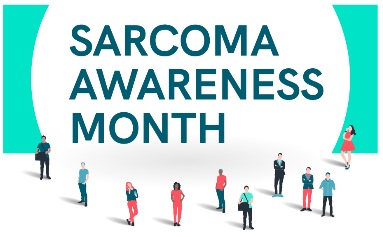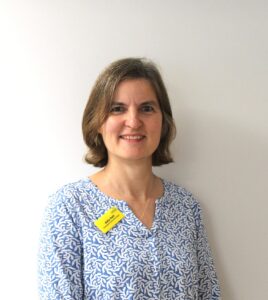
 Sarcoma is a very rare form of cancer, but diagnosing it early can save lives. Every day 15 people are diagnosed in the UK – around 5,000 every year.
Sarcoma is a very rare form of cancer, but diagnosing it early can save lives. Every day 15 people are diagnosed in the UK – around 5,000 every year.
In general, sarcomas are managed by a small number of specialist centres across the UK and patients from Maidstone and Tunbridge Wells NHS Trust (MTW) are referred to London for their management through our strong partnerships with the sites.
July marks Sarcoma Awareness Month to raise awareness of sarcoma and the importance of early diagnosis. To find out more, we sat down with Consultant Clinical Oncologist, Julia Hall.
We talked about her role in supporting patients in the Kent Oncology Centre at Maidstone Hospital, the key symptoms to watch for and some tips on when to seek medical advice.
How does MTW care for sarcoma patients?
MTW is not a sarcoma specialist centre but sometimes patients require radiotherapy before or after surgery. Often this treatment is given daily for five to six weeks.
For some patients, travelling to one of the London specialist sites (Royal Marsden Hospital or Royal National Orthopaedic Hospital, in conjunction with University College London Hospitals) for this length of treatment is challenging and so the Kent Oncology Centre gets involved by treating patients locally.
Some patients also require chemotherapy for symptom control and do not wish to travel to London for it so these patients can have treatment at Maidstone Hospital which is much easier for them. We provide this care under the guidance and direction of the specialist sites, so partnership working is key to support this group of patients.
What is sarcoma and what are the symptoms and things to look out for?
The most common symptom of sarcoma is a lump – anywhere on the body – that is growing and changing but it can also include swelling or tenderness or pain in the bone, or other symptoms.
There are two main types of sarcoma: soft tissue and bone sarcoma and within these types, there are around 100 subtypes, such as synovial sarcomas which develop in the cells around joints and tendons or a fibrosarcoma which affects the connective tissues of the body.
It is not yet fully understood why sarcomas occur and more research is underway, but it can affect anyone of any age; it’s the third most common cancer in children.
My advice to anyone would be to keep a close eye on any lumps and get them checked with your GP as soon as possible, so they can be diagnosed at an early stage. Lumps particularly on the limbs are ones to watch. These are often the type we naturally ignore as we think it could just be a knock or a minor injury.
What other ways does MTW support sarcoma patients?
We have recently appointed a new rare cancers CNS, whose role will include supporting patients being treated for sarcoma at MTW.
This will really help with any worries patients have, being their first port of call, supporting them and their families through their treatments and playing a key role in the partnership working with us and the specialist sites.
